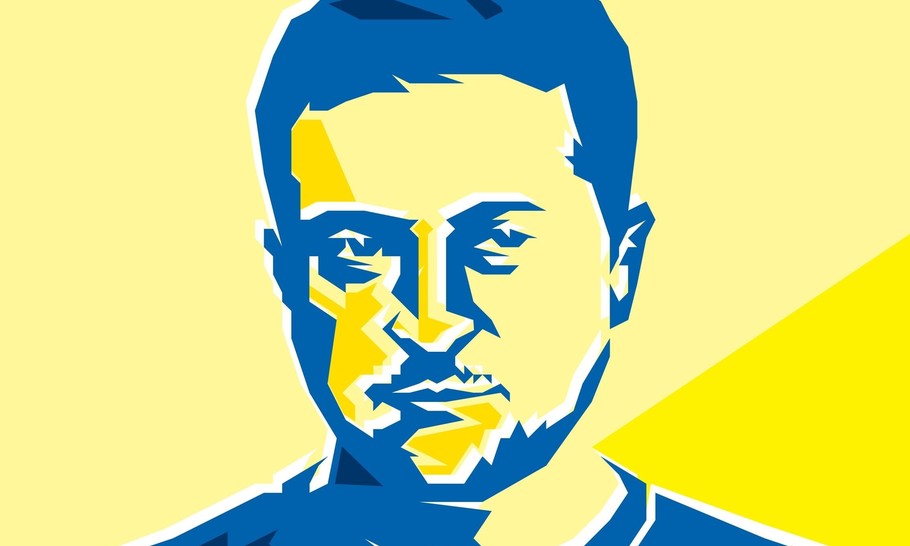Personalities of 2022

(Shutterstock)
The outstanding political personality of 2022 was obviously Volodymyr Zelensky. There is no one else to compare with him. Zelensky stood out this year as a beacon of hope for liberals worldwide: humane, decent, patriotic. The battle between Ukraine, aspiring to join the EU and NATO, and the forces of evil, embodied by Putin, could not have been starker. Western politicians who have stood by Zelensky, most obviously Boris Johnson and President Biden, did themselves enormous credit. Those who wavered or, worse still — like pro-Trump Republicans or some European politicians — who actually opposed financial aid for Ukraine, only condemned themselves.
It is hard to think of a year which has offered more great sports personalities. Roger Federer ended an extraordinary career as one of the greatest male tennis players. Also in their forties, Venus and Serena Williams, two of the greatest female stars of the game, have both denied that they are retiring.
In football, Sarina Wiegman, the Dutch manager of the England women’s national team since September 2021, led England to win the 2022 Euros and embodied a fundamental decency. She certainly deserved her honorary CBE — though many fans thought it a shame that, apart from Wiegman, only four Lionesses were recognised in this year’s New Year Honours.
In the men’s game, Lionel Messi, 35, and Kylian Mbappe, 24, fought to the end of the World Cup Final for the right to be considered the greatest footballer of our time, with the added drama of the sense of handing over the torch from the hero of one generation to that of another. The death of Pelé last week was a sad reminder of an earlier era, over half a century ago, when television first turned great footballers into global superstars.
But Ben Stokes, the captain of the England cricket team, has too often been overlooked — a reflection of the marginalisation of cricket in recent years. He led England to a series of victories, but it was the manner in which they were achieved that was breathtaking, a new kind of exhilarating cricket unlike anything most of us have ever seen before.
2022 was not a great year for writers, but it was another great year for literary translators, perhaps especially translators from Russian, such as Boris Dralyuk, who published his third volume of translations of Isaac Babel’s stories, Robert Chandler, whose translation of Vassily Grossman’s novel, The People Immortal, further expands our knowledge of Soviet literature, and Bryan Karetnyk, whose translation of Yuri Felson’s novel, Deceit, introduced us to another great Soviet-Jewish author. The last twenty years have been a golden age for literary translation, one of the highlights of the 21st century, and 2022 shows there is no sign of this slowing down.
Among the best non-fiction authors of the year are Keiron Pim, author of Endless Flight, a fascinating biography of Joseph Roth, and the American historian Jeffrey Veidlinger, author of In The Midst of Civilised Europe, a powerful account of the pogroms in post-World War I Ukraine. These two books don’t just illuminate a particular moment in early 20th century central and eastern Europe. They are both part of a fascinating shift in our culture from West to East, part of the opening up of previously neglected regions of Europe, from Poland to Ukraine, which is both topical and long overdue.
Paula Rego died in 2022, soon after her magnificent retrospective at Tate Britain, which confirmed her reputation as one of the great artists of our time. Too often female figurative artists, like Rego and Käthe Kollwitz (recently shown at the Royal Academy), have been in the shadow of their male contemporaries. This is beginning to change, thanks to a new generation of curators and art historians. Rego and Kollwitz deserve to be considered among the great artists of 2022.
The public intellectuals of the year include Helen Joyce, who has become a prominent critic of gender-identity ideology, and Professor Arif Ahmed, a passionate defender of free speech in British universities. At a time when many universities have become conformist and fallen in line with the latest orthodoxies, Joyce and Ahmed have fought for the right of independent thinkers to speak their mind without being banned or censored.
The broadcaster of the year is Melvyn Bragg, presenter of In Our Time, the much-acclaimed weekly series on Radio 4. Bragg established himself as the outstanding editor and presenter of The South Bank Show, which ran on ITV for 32 seasons, from 1978-2010. At the same time, he was an outstanding presenter of Radio 4’s Monday morning discussion programme, Start the Week, and then in 1998, together with the producer Simon Tillotson, started In Our Time, which is fast approaching 1000 episodes over almost 25 years. The format is simple. Bragg talks to three guests about a chosen subject, but it is the range and quality of the programmes that is so impressive, from Herodotus to Fritz Lang, from Citizen Kane to the Morant Bay Rebellion.
Finally, 2022 has been a wretched year for British politics but a good year for political journalists and commentators, including Chris Mason, Sebastian Payne, Matt Goodwin and Daniel Finkelstein. It is also worth pointing out that in 2022 Jonathan Freedland, an outstanding columnist at The Guardian, published The Escape Artist, a justly acclaimed book about an Auschwitz survivor, Rudolf Vrba, and Jews in Their Own Words, a play about British antisemitism performed at The Royal Court.
A Message from TheArticle
We are the only publication that’s committed to covering every angle. We have an important contribution to make, one that’s needed now more than ever, and we need your help to continue publishing throughout these hard economic times. So please, make a donation.





